BRAIN:
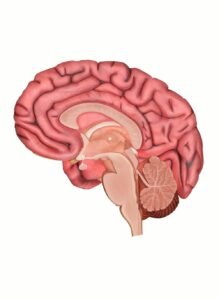
Brain is a complex organ that serves as the command center of the body. It controls our thoughts, memory, speech, movement, and emotions. It is consists of different regions, each responsible for specific functions. For example, the frontal lobe is involved in decision-making and personality, the temporal lobe is associated with memory and hearing, the parietal lobe processes sensory information, and the occipital lobe is responsible for visual processing.
Neurons are the basic building blocks of the brain, transmitting information through electrical and chemical signals. These signals create neural pathways that allow different parts to communicate with each other. It also produces various neurotransmitters, such as dopamine and serotonin, which play a crucial role in regulating mood, behavior, and cognition.
It’s essential to take care of your brain health by staying mentally active, getting enough sleep, eating a balanced diet, exercising regularly, and managing stress. Prioritizing your brain health can help improve cognitive function, memory, and overall well-being.
In short, it’s like a supercomputer in our body. It’s the boss that controls everything we do – thinking, feeling, moving, and even breathing. It’s made up of different parts, each with its own job. Neurons are like the messengers that send signals around it, so it can do its work. Taking care of your brain is super important for staying healthy and happy.
WHAT DOES BRAIN WORK?
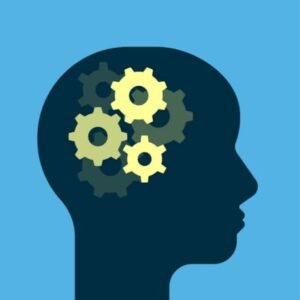
Let’s dive a bit deeper into how it functions. It is divided into different regions, each responsible for various functions. For example, the frontal lobe is involved in decision-making and problem-solving, while the occipital lobe processes visual information.
Neurons, which are the brain’s messaging cells, communicate through electrical and chemical signals. When we learn something new or experience something, these signals travel between neurons, forming connections and pathways. This process is called neuroplasticity, and it allows to adapt, learn, and change throughout life.
Neurotransmitters, such as dopamine and serotonin, play a crucial role in regulating mood, emotions, and other functions. For example, dopamine is often associated with pleasure and reward, while serotonin is linked to mood regulation.
Overall, it is a highly intricate and dynamic organ that continuously processes information, regulates our emotions, and coordinates our movements, allowing us to navigate our daily lives.
PARTS OF BRAIN AND IT’S FUNCTIONS:
It has different main parts, each with its own important functions. Let’s explore them more deeply:
- FRONTAL LOBE:
This part of the brain is responsible for decision-making, problem-solving, planning, and controlling emotions. It also plays a role in personality and social behavior.
- PARIETAL LOBE:
The parietal lobe processes sensory information like touch, temperature, and pain. It helps us understand spatial awareness and navigate the world around us.
- TEMPORAL LOBE:
The temporal lobe is involved in memory, language, and processing auditory information. It helps us recognize faces, understand language, and store memories.
- OCCIPITAL LOBE:
This lobe is primarily responsible for processing visual information from the eyes. It helps us interpret and make sense of what we see.
- CEREBRUM:
The cerebrum is the largest part of the brain and is divided into two hemispheres: the left and right hemispheres. It is responsible for higher brain functions such as thinking, learning, memory, and voluntary movements. The outer layer of the cerebrum, called the cerebral cortex, is where most of the information processing occurs. It is divided into four lobes: frontal, parietal, temporal, and occipital, each with specific functions. The cerebrum plays a crucial role in our ability to perceive the world, make decisions, and interact with our environment.
- CEREBELLUM:
The cerebellum coordinates movement, balance, and posture. It helps us perform smooth and coordinated movements.
- BRAINSTEM:
The brainstem controls basic life functions like breathing, heart rate, and blood pressure. It also serves as a pathway for messages between the brain and the rest of the body.
- HIPPOCAMPUS:
The hippocampus is crucial for forming and storing memories. It helps us remember past events and experiences.
Understanding the functions of these main parts of the brain gives us insight into how our brain processes information, controls our movements, and influences our thoughts and behaviors. Each part plays a vital role in our overall cognitive and physical functioning.
SIGNALS TRANSFERED TO BRAIN:
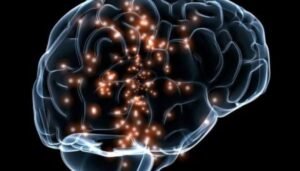
Signals travel to the brain through a network of neurons. When our sensory organs detect stimuli like touch, sound, light, or smell, they send electrical signals through sensory neurons to the mind. These signals travel along the neurons as electrochemical impulses. Once the signals reach the mind, they are processed and interpreted by different parts of the brain responsible for specific functions like perception, memory, and movement. This intricate system allows us to perceive and respond to the world around us.
PROBLEMS AND DISEASES WHICH AFFECT BRAIN AND IT’S FUNCTIONING:
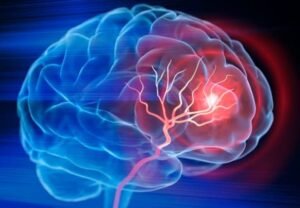
- Traumatic Brain Injury (TBI):
Resulting from a blow or jolt to the head, TBIs can cause a range of symptoms from mild concussions to severe brain damage.
- Stroke:
Occurs when blood flow to the brain is interrupted, leading to brain cell damage. Strokes can cause paralysis, speech difficulties, and cognitive impairments.
- Alzheimer’s Disease:
A progressive neurodegenerative disorder that affects memory, thinking, and behavior. It is the most common form of dementia.
- Parkinson’s Disease:
A neurodegenerative disorder that affects movement, causing tremors, stiffness, and difficulty with balance and coordination.
- Epilepsy:
Characterized by recurrent seizures due to abnormal electrical activity in the brain.
- Brain Tumors:
Abnormal growths in the brain that can be benign or malignant, affecting brain function depending on their location and size.
- Multiple Sclerosis (MS):
An autoimmune disease that affects the central nervous system, leading to communication problems between the mind and the rest of the body.
- Migraines:
Severe headaches often accompanied by sensory disturbances, which can be debilitating for some individuals.
HOW TO KEEP BRAIN HEALTHY:
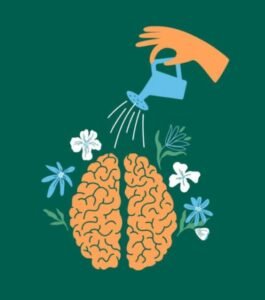
To keep your brain healthy emotionally and physically, it’s important to take care of your feelings and your body. Emotionally, you can look after your brain by practicing mindfulness, doing things you love, sharing your emotions, and seeking support from loved ones. Managing stress through relaxation techniques like deep breathing or meditation is also key.
Physically, you can care for it by leading a healthy lifestyle. This involves eating a balanced diet with plenty of fruits, veggies, whole grains, and lean proteins. Regular exercise is crucial for mind health as it boosts blood flow and encourages the growth of new brain cells. Getting enough quality sleep is vital for cognitive function and emotional balance.
By combining emotional well-being with physical health, you can ensure your brain stays in great shape, leading to overall improved health and happiness.
Several factors can impact mind both emotionally and physically. Emotionally, stress, trauma, relationships, and life experiences can affect our mental well-being. Stress, in particular, can lead to emotional challenges and impact brain function. Positive relationships and social connections, on the other hand, can have a beneficial effect on emotional health.
Physically, factors like diet, exercise, sleep, and overall health play a significant role in brain function. A balanced diet rich in nutrients supports mind health, while regular physical activity improves blood flow to the brain and promotes the growth of new brain cells. Quality sleep is essential for cognitive function and emotional stability.
Additionally, environmental factors, such as exposure to toxins, pollutants, or substances like drugs and alcohol, can also impact the brain both emotionally and physically. Taking care to address these factors can help maintain a healthy mind and overall well-being.
By using this site, you agree to the Terms and conditions and Privacy Policy of https://beautyvitalityco.com/
Previous Post: https://beautyvitalityco.com/top-skincare-ingredients-for-glowing-skin/



0 Comments